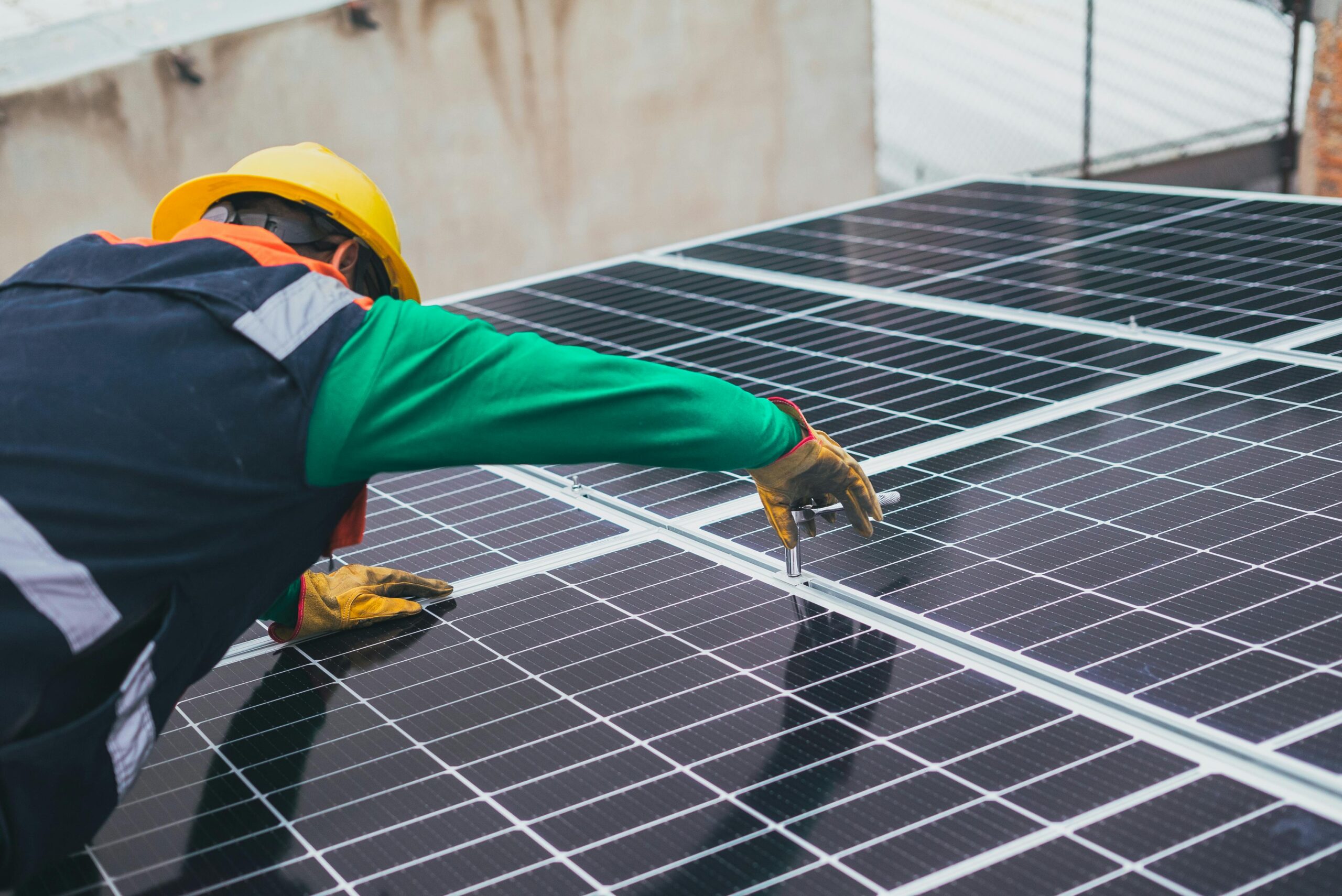comms@pedestalafrica.com +234 809 761 1111 Africa Investment Notes | Q2, 2025 Read now
Africa, known for its abundant sunshine and vast untapped potential, is rapidly emerging as a key player in the global shift towards renewable energy. Solar power, in particular, is shining as a beacon of hope for addressing the continent’s energy challenges while promoting sustainability and economic growth. In this article, we’ll explore the growth of solar energy in Africa, its impact on energy access, and the opportunities it presents for investors and sustainable development.
Harnessing the African Sun: A Renewable Energy Revolution
Africa’s solar energy potential is immense. With an average of 300 sunny days per year in many regions, it’s no surprise that solar power has become a focal point of renewable energy development. Here’s why solar energy is gaining momentum in Africa:
1. Energy Access
A significant portion of Africa’s population lacks access to electricity. Solar power offers a decentralized and cost-effective solution, making it possible to bring electricity to off-grid and remote areas.
2. Environmental Sustainability
Solar energy is clean and emits no greenhouse gases. As climate change becomes an increasing concern, transitioning to solar power helps reduce carbon emissions and combat environmental degradation.
3. Economic Growth
Investments in solar energy create jobs and stimulate economic growth. From solar panel manufacturing to installation and maintenance, the solar industry contributes to local economies.
4. Versatility and Adaptability
Solar energy systems come in various forms, from small-scale solar home systems to large solar farms. This adaptability allows solar power to meet diverse energy needs across the continent.
Solar Power Projects Illuminating Africa
Africa is witnessing a surge in solar energy projects that are changing the energy landscape and improving the lives of millions. Here are some notable examples:
1. Azraq Solar Power Plant, Jordan
Located in Jordan, this massive solar power plant provides clean energy to thousands of households and businesses. It’s an example of how solar projects can benefit entire regions.
2. Solar Home Systems in Kenya
Kenya’s off-grid solar sector has experienced remarkable growth. Solar home systems are bringing electricity to rural areas, empowering communities, and promoting economic activities.
3. The Noor Solar Complex, Morocco
The Noor Solar Complex in Morocco is one of the world’s largest concentrated solar power (CSP) projects. It demonstrates the potential of solar thermal technology for generating clean, reliable energy.
Investment Opportunities in African Solar Energy
The solar energy sector in Africa offers promising investment opportunities for those looking to contribute to sustainable development while earning returns on their investments. Here are some avenues for investment:
1. Utility-Scale Solar Projects
Investing in large-scale solar projects, such as solar farms and photovoltaic installations, can provide consistent and predictable returns, often through power purchase agreements (PPAs).
2. Off-Grid and Mini-Grid Solutions
Off-grid solar solutions, including solar home systems and mini-grids, are critical for extending electricity access to remote and underserved areas. Impact investors can find opportunities in these projects.
3. Solar Technology and Manufacturing
Investors can explore opportunities in solar technology development, including the production of solar panels, batteries, and other components.
4. Solar Financing and Microloans
Facilitating access to financing for individuals and small businesses looking to invest in solar power can be a profitable venture while supporting sustainable energy adoption.
Challenges in Solar Energy Investment
While the opportunities in solar energy are vast, there are challenges that investors must navigate:
1. Initial Capital Requirements
Solar energy projects often require significant upfront capital, making financing a key consideration for investors.
2. Regulatory and Policy Frameworks
The regulatory environment for solar energy varies across African countries. Investors must understand local laws and policies to ensure compliance.
3. Technical and Infrastructure Challenges
Solar projects require skilled personnel and proper infrastructure. Addressing these technical challenges is essential for project success.
4. Energy Storage Solutions
The intermittency of solar power requires effective energy storage solutions, which can add complexity and cost to projects.
Conclusion
Solar power is powering up Africa’s energy landscape, offering a sustainable and affordable solution to energy access challenges. It represents not only an opportunity for investors seeking returns but also a means to drive economic growth and combat climate change.
Investors in the African solar energy sector should prioritize innovation, collaboration with local communities, and a commitment to sustainable development. As Africa’s solar industry continues to evolve, it will illuminate the path toward a brighter, cleaner, and more prosperous future for the continent and its people.

